Vincent CHETAIL
accueil > Intégralité des débats > SESSION 6
SESSION 6
version originale bilingue - tout en français - tout en anglais
Thème de la session : DÉBATS AVEC LES UNIVERSITAIRES
Samedi 11 Juillet, 13h30 – 16h30
Président : Vincent CHETAIL
-
contribution 01 - CHETAIL Vincent
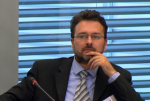
all the session in: version originale bilingue français english
transtlated version
Thank you for showing up for this last closing session. I will start by introducing myself. I am Vincent Chetail. I am a Research Director at the Geneva Academy of International Law and humanitarian rights and also Professor at the Graduate Institute of International and Development studies. I was part of the organisation of this symposium with André Guichaoua, who was the initiator of this great idea. My role was mostly one of facilitator, even though obviously it entails some measure of responsibility. From a purely personal standpoint, I must say that it was a great pleasure to work with André Guichaoua. I may not have another (...) -
contribution 02 - SOREL Jean-Marc

all the session in: version originale bilingue français english
Jean-Marc SOREL
transtlated version
Thank you, Mr. Chairman, dear Vincent, and thank you, too, for organizing this very beautiful symposium. I will try to go slowly for the reporters who yesterday accused me of going too fast. They were right, and I would like to commend their work. So the one talking to you now is a theoretician, to use the expression Madam Del Ponte used this morning to describe academics. Mr. Getti, who chaired the first session, is not present here. I, myself, I will have to leave by 3 p.m., so I crave your indulgence. He left some notes, but we don’t have too much time. Now, I will not use Mr. Getti’s notes but only his conclusion. He agreed with (...)Vincent CHETAIL
Thank you for this perspective which is pretty enriching and which actually has been quite stirring.
I am going to hand the floor to Antoine Garapon to summarize yesterday’s session before giving the floor to the other academics so they can air their views in respect of our work over the last two and a half days.
-
contribution 03 - GARAPON Antoine
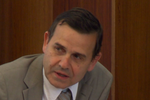
all the session in: version originale bilingue français english
Antoine GARAPON
transtlated version
I am not going to make a summary of what has been partially done by my friend and colleague. I will revisit an issue which was recurrent in our deliberations, namely, the relations between politics and justice. What is disturbing is that this a power relationship which transcends law, which is above the law. How can that be characterized? I will premise my thoughts on an observation made by Ms. Del Ponte this morning. International justice needs States. It needs politics, at least for the collection of evidence. But we have to emphasize that politics sometimes needs justice or the judiciary. So this is quite an asymmetrical (...)Vincent CHETAIL
We will now move to the presentation by academics.
My proposal is the following: We should listen to the academics who are going to make a presentation of four or five minutes. At the end of their presentations, we will open the floor for discussion. I hope that you appreciated the silence of academics, which is quite supervising so far. But the intention here is not to monopolise the floor, but we are here to ensure proper dialogue.
So, for the time being, this is the slot of academics. Kindly write down your questions and forward same to us so that they can be responded to. I will start with Claudine Vidal who is a researcher at the CNRS.
Madam, you have the floor.
-
contribution 04 - VIDAL Claudine
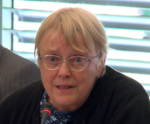
all the session in: version originale bilingue français english
Claudine VIDAL
transtlated version
In the little time I have, I am going to tackle a few issues which are of concern to the researcher which may seem shallow, but, as far as I am concerned, that is an expert’s opinion. I was struck by Thierry Cruvellier’s statement when he said that reviewing the Akayesu judgment and the Bagosora judgment, we realized the strides made by the Tribunal in its historical account. I completely agree. This historical record is very important to us, and we are all aware of the extent to which historians rely on these documents, differently from jurists, not for the purpose of making criticisms but to ensure free thinking. What is important is (...)Vincent CHETAIL
And that is the fundamental ambivalence of international criminal justice. In this specific case it has a symbolic function. We have mentioned judicial notice of genocide and also the fact that our supposed virtue becomes an incantation, and that is also the interest of the International Criminal Court because it also encapsulates the fundamental dilemmas of justice and the links which are somewhat contradictory with reconciliation.
I would like to give the floor first to Catherine Newbury who is a professor at the Smith College in Northampton. -
contribution 05 - NEWBURY Catharine

all the session in: bilingual original version français english
tags
RPF prosecutionCatharine NEWBURY
original version
I would like to thank André Guichaoua and the organising committee for holding this Conference and bringing together this impressive group to reflect on the achievements of the ICTR during the past 15 years. Special appreciation also to Sylvie Capitant and Christophe Golay for arranging for our travel and taking such good care of us here in Geneva. Let me first say that having this opportunity to observe the lively discussions and debates over the past two days has been an extraordinary experience. I appreciate the candid assessments provided by current and past personnel from the different parts of the Tribunal, as well as the lawyers (...)Vincent CHETAIL
Thank you very much for your presentation. Ultimately, it echoes the discussion that we had from the beginning. The specter that hangs over the Tribunal, the specter of victor’s justice, that also hangs over international justice as a whole. So that is the typical criticism that is leveled at it and which is appearing here again in this specific case, even though we should recall that it is not exclusive to the ICTR.
Today we may still ask ourselves a number of questions, even on the activities for the ICC. So it is a major challenge, present and future, for international criminal justice. Rwanda commits its credibility.
So, on that note, I will give the floor to Professor Lars Waldorf, the Director of the Human Rights Institute in London.
-
contribution 06 - WALDORF Lars
all the session in: bilingual original version français english
tags
ReconciliationLars WALDORF
original version
Thank you. I have four minutes, so I will make four short points. I want to begin by thanking the organisers for letting me eavesdrop for the last two and a half days. I appreciate that. The first issue is what is the impact of the ICTR on national reconciliation or perhaps more realistically on local appeasement. Surprisingly, there are very few studies out there of how ordinary Rwandans on the hills actually perceive the ICTR. This really sort of goes back to an observation that Leslie Haskell made yesterday afternoon. There have been a few small scale attitudinal surveys that have been conducted, and they show that ordinary (...)Vincent CHETAIL
Thank you very much. In anticipation of the discussions to come, I will give the floor to Professor William Schabas of Ireland University.
-
contribution 07 - SCHABAS William
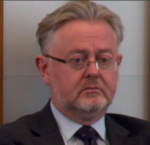
all the session in: bilingual original version français english
William SCHABAS
original version
Aside from the usual thanks to the organisers, I would like to start my remarks by thanking all of the people in this unusual gathering around the table who have given so much of their professional lives to trying to make this project work. I think it’s important that you should know that it has worked. The discussions I have heard ‑‑ and I wasn’t here for the entire meeting ‑‑ left me with the impression of ‑‑ as often happens when people evaluate and assess the performance of an institution, criticism of various aspects without standing back and looking at the broader picture. But I remember when all of this started in 1994 and the goal was (...)Vincent CHETAIL
Thank you. At least you managed to break a record in time management for an academic.
We will continue to follow the example of the academics that rarely agree. Clearly, from those short presentations, what can be gathered, and which was also a subject of stakeholders, is the collection between justice and politics, which is an important point that deserves discussion here.We have the opportunity to have a broad spectrum of stakeholders. And it has been stated, and Antoine said that those relations are pretty close for a simple reason, because justice is an offshoot of politics and in return justice conditions politics.
This is obvious in national law and more visible in international law for a simple reason, that is, the omnipresence of the State as an active stakeholder working more dominantly compared to all the other international stakeholders. I would like to mention that when talking to my students, I always quote Paul Reiter who summarizes the issue properly. He said, "States are corporate entities who are not really persons or moral entities." This highlights the challenges and difficulties of justice and politics. As we try to refocus on this issue, which is not quite a problem, but which could be a problem, namely, are the State as a key stakeholder in the international arena? I believe that we need to deepen this issue in the course of our discussions.
I would like to give the floor to Mr. O’Donnell who has requested to speak in respect of the link between justice and politics and specifically on some crosscutting aspects of that tandem.
-
contribution 08 - O’DONNELL Everard
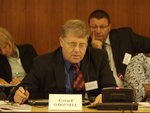
all the session in: bilingual original version français english
tags
Politics & JusticeEverard O’DONNELL
original version
Thank you, Mr. Chairman. I just wish briefly to, in fact, endorse much of what has been unexpectedly said, since my request to speak, by Professor Schabas. The whole issue of politics and justice is central to the purpose of the ICTR, because we were set up by a political organisation for political motives, but we are not directly concerned with those political motives or the ultimate political purpose, because the political organisation, the Security Council, that set up the ICTR intended that if justice were fairly done, then that would achieve its political purpose. And all we have to do is to keep politics out of our courtrooms in (...)Vincent CHETAIL
Thank you very much for those clarifications. And when we talk about politics and justice, it does not exclude interference in the conduct of the trial. We are referring to more a wider context, and we have to look and ensure that the independence of the Judges is established. And we are looking specifically at the more comprehensive context.
Before giving the floor to the other speakers, I would like to apologize beforehand if I mispronounce any names. And I have an additional excuse because very few people can pronounce my name. And my colleagues in Benin have solved that problem by calling me Mr. Vincent. You can call me Vincent, and that is quite an excuse for me to mispronounce anybody’s name, starting by the name of my colleague Filip Reyntjens, who has the floor.
-
contribution 09 - REYNTJENS Filip
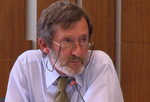
all the session in: bilingual original version français english
Filip REYNTJENS
original version
Thank you, Mr. Vincent. You have properly pronounced my name. In French it is pronounced Reyntjens or something like that. This will not come as a surprise to Bill Schabas, I think that his demonstration was actually quite unconvincing, and I would say at least for three reasons. The first is that the comparison made with Nuremberg and post‑Nazi Germany is simply not realistic in the sense that the Nazi regime was not succeeded by a another criminal regime. And that is pretty different in Rwanda. The current Rwandan regime, after the period of the genocide and its committing crimes against humanity and war crimes then went on (...) -
contribution 10 - STEWART James
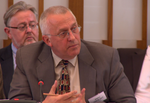
all the session in: bilingual original version français english
tags
ICTR assessmentJames STEWART
original version
I’m going to change the tone just slightly and pick up on something that Lars said. And this is purely anecdotal. He talked about what was the impact of these trials on Rwandans. So I would just like to share with you, if I may, some of the experience I had as a line Prosecutor in the early days of the Tribunal dealing with the only Rwandans that I was dealing with very closely, namely, the witnesses or survivors and other witnesses of what had happened in 1994. And I remember that we used to go and see our witnesses after each session in our chamber, after they had testified, when everything was finished and they were essentially (...)Vincent CHETAIL
Je donne la parole à Madame Silvana Arbia. Merci beaucoup.
-
contribution 11 - ARBIA Silvana
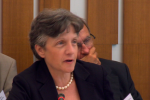
all the session in: version originale bilingue français english
tags
Politics & JusticeSilvana ARBIA
transtlated version
Thank you very much. Very briefly, I would like to say a few words on two or three issues. The issue of politics and justice, to me, it is beyond me. I have never had to address this topic which is akin to philosophy, another subject, which I do not know. But somebody mentioned the developments which are noted between the first ICTR judgment and a more recent judgment, and that is an increasing manifestation of the truth. Of course, to conduct investigations or to deliver judgments on all events, including the deeds of the various parties in conflict, and it contributes to extending the setting so that we can understand what happened (...)Vincent CHETAIL
Thank you. I believe we all agree on the need to preserve the independence of the courts, although I do not believe that the judicial independence is questioned today but it is in my opinion the general context.
I will now give the floor perhaps to address an issue that was raised a while ago, namely, national reconciliation. I’ll give the floor to Françoise Ngendahayo.
-
contribution 12 - NGENDAHAYO Françoise
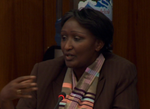
all the session in: version originale bilingue français english
tags
ReconciliationFrançoise NGENDAHAYO
transtlated version
Thank you, Chair. I would like to make a pronouncement on the impact of the Tribunal on reconciliation of Rwanda. I would rely on a case which I witnessed in Akayesu trial when we were pleading for the voices of the victims to be heard. And we were pleading for or appealing for psychological support, medical care and rehabilitation. And let me take this opportunity to thank the registry which has made a lot of efforts. At that time, our focus was on victims suffering from HIV/AIDS. Mr Prosper will remember a certain witness called “JJ” who made a high profile testimony and was virtually dying. And after the trial I went to see that (...)Vincent CHETAIL
Thank you. Some of the victims are part of our discussion this far, but it will be interesting, admittedly, to deepen the issue according to, well, a study on the ground on reconciliation, and reconciliation, of course, cannot be decreed. And Mr. Schabas cited an example of Germany, which is both an example and a counter example because ultimately France and Germany had to go through world wars to be able to achieve reconciliation. And that shows you just how long reconciliation takes and how it depends on factors that are difficult to quantify.
I will now give the floor to Madam Fadugba.
-
contribution 13 - FADUGBA Ayodedji
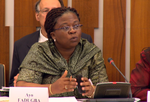
all the session in: bilingual original version français english
tags
ICTR assessmentAyodeji FADUGBA
original version
Thank you very much. The one comment I wanted to make is something that we did not have time to talk about during these proceedings, it is the fact that for the contribution of the ICTR, I think that from the Office of the Prosecutor we also see a role of mobilisation, because the International Tribunals are limited in time and space, but what we have been able to do is start the work of mobilisation. I remember last year that the Prosecutor called a conference of national prosecutors to discuss the challenges that are inherent in trying to prosecute these crimes as a way of mobilising to close the impunity gap even after the ICTR (...)Vincent CHETAIL
Professor Degni-Ségui, please.
-
contribution 14 - Biju-Duval Jean-Marie
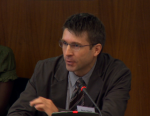
all the session in: version originale bilingue français english
René DEGNI-SÉGUI
transtlated version
Thank you, Professor. Before I get into the heart of the matter, I would like to join those who have come before me to say thank you to all the organizers and especially to Professor Guichaoua, who invited me here. Mr. Chairman, dear colleagues, I believe that I’m here in two capacities, a professor and the former special rapporteur. I’m sure the other, this one as professor, has been taken away, so I will speak as the former rapporteur. Well, so much has been said that I just don’t want to revisit it, but as the former rapporteur, allow me to take us back a bit to say that when one considers the track record of the Tribunal, I would (...)Vincent CHETAIL
Thank you. I will have to establish a rule in the sense that I have allowed everybody who asked for the floor to speak, but now I just can’t do so, and there is the issue of time.
Now, for those who wanted to speak, they may be given the floor, but we have to stop at some point. So I would crave your indulgence to be brief.
Now the floor is open to Mr. Biju Duval. -
contribution 15 - Biju-Duval Jean-Marie

all the session in: version originale bilingue français english
tags
Politics & JusticeJean-Marie BIJU-DUVAL
transtlated version
Thank you. I would like to say a word on the issue of international justice and the influence of politics from the standpoint of the Defense, the defense that remains the defense of an individual. We have talked about the balance of power. We’ve talked about the balance of power between political powers and a judicial institution. Now, the Defense takes the standpoint of an accused person. I’m not going to revisit the nightmare of Mr. O’Donnell, who apparently is haunted by the image of the UNDF and all that. The truth is that when someone is accused, he is essentially alone in the face of his situation, in the face of his defense and (...)Vincent CHETAIL
Thank you. André Guichaoua.
-
contribution 16 - GUICHAOUA, André

all the session in: version originale bilingue français english
André GUICHAOUA
transtlated version
Let me start by sayings that even though the idea to organize this symposium came from a small group of persons, let us not leave it at that. To put it clearly, when we discussed the idea of convening this symposium, the issue was discussed with officials of the ICTR. I didn’t say so before, but let me say so now very clearly, at the end of 2007, when we discussed the issue for the first time, I discussed it with Prosecutor Jallow, with Mr. Dieng, Judge Møse, Roland Amoussouga and also Richard Karegyesa, and everyone was unanimous of the idea. So it is not a Guichaoua symposium. I am sorry. It is first and foremost an ICTR symposium. (...)Vincent CHETAIL
I believe we have three more speakers, and I will ask them to be very brief.
Now I will give the floor to Mr. Eboe Osuji on the distinction between ordinary crime and international crime, as we discussed before.
-
contribution 17 - EBOE-OSUJI Chile

all the session in: bilingual original version français english
Chile EBOE-OSUJI
original version
Thank you very much, Mr. Chairman. My point relates to the matter raised by Professor Reyntjens when he spoke on his last point. In my comments, of course, I want to be clear, are not meant to address the specific factual situation that he was speaking about, that was the Kabgayi case, but rather a larger philosophical question that I hope we can think about as perhaps part of the outcomes of this meeting. And that is the practical significance of this distinction between international crimes and ordinary crimes. I have always been an advocate of the distinction. Let me be clear about that. But I always understood that the point (...)Vincent CHETAIL
I give the floor to Mr.Nsengimana.
-
contribution 18 - NSENGIMANA Nkiko
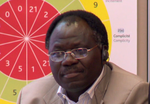
all the session in: version originale bilingue français english
Nkiko NSENGIMANA
transtlated version
Thank you, indeed. I would like to dwell on three small quick points. Mr. Schabas mentioned 25,000 deaths, killed by the RPF, and to him those were statistics and without importance regarding other deaths. Srebrenica was much less, yet it is a genocide. I would also like to say that the figure is not 25,000 fatalities. I know much more. A specific testimony, as a matter of fact, I was a stakeholder or a player in the Rwandan society, and I was lucky to be witness to some events. After the conclusion of the agreements on the 4th of August 1993, there were a million refugees from Byumba, and most of them had come from Ruhengeri. They (...)Vincent CHETAIL
Thank you. A last word from Mrs. Professor Yvonne Flour.
-
contribution 19 - FLOUR Yvonne
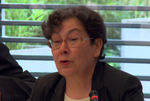
all the session in: version originale bilingue français english
tags
ICTR assessmentYvonne FLOUR
transtlated version
Thank you. I will be very brief. I have been given a hat and I am trying to get it back. I have two observations to conclude this colloquium. First of all, I would like to state my appreciation to all the stakeholders, not only the organisers, to all the participants who spoke at length throughout the discussions. During my short opening statement I said it would be an endearing experience which required humility, open mindedness and apathy. I was struck by the diversity of opinions that were voiced. They were not only views, but they were experiences but a diversity of statements and the manner in which those views and thoughts (...)Vincent CHETAIL
I note that I have made a mistake myself and I will give the floor to Mr. Muna. Please be extremely brief in your statement. I am sorry.
-
contribution 20 - MUNA Bernard Acho
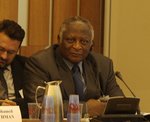
all the session in: bilingual original version français english
tags
RPF prosecutionBernard MUNA
original version
I want just to start with a little remark, because I was also once the Deputy Prosecutor in charge, and I think when I hear the calling of Mr. Jallow, "You don’t do this, you don’t do that," I feel also concerned. As a Prosecutor I worked within the means provided by me. As far as the FPR discussions, we had five. I called the procureur militaire. We worked on it. When Madam Arbia came, we went to see Mr. Kagame, and he agreed. But in the final analysis, in the atmosphere of the Rwandan Tribunal, the Prosecutor does not have an army in which he can go into Rwanda and do what he likes. And I think Madam Arbia raised this with the (...) -
contribution 21 - CHETAIL Vincent

all the session in: version originale bilingue français english
Vincent CHETAIL
transtlated version
Thank you very much. I think we’ll spend nights and days to discuss, as there’s a lot to say, obviously. I’m going to give the floor at this juncture to Adama Dieng. And before giving him the floor, I would like to say a few words. I wish to thank especially the students of my international criminal law class who have supported us. Let me mention their names: Céline Bauloz, Clément Emery, Alicia Giraudel, Élise Hansbury, Fara Ndiaye and Ivonna Truscan. I would also like to thank Aline Baumgarnter, and the two linchpins, Sylvie Capitant, for her remarkable and critical, crucial work, as everybody has seen for themselves, as well as (...) -
contribution 22 - DIENG Adama
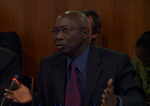
all the session in: version originale bilingue français english
tags
ICTR assessmentAdama DIENG
transtlated version
Thank you, Mr. Chair. Dear colleagues and friends, ladies and gentlemen, I am tempted to use this opportunity to answer a question put to me by my neighbour, Mr. Waldorf, that seems to me very important: “The ICTR built a large constitution in Africa to bring an end to impunity.” Indeed, we tried our best. And as you may know, it is not really for the ICTR. We did not have the means. And that is why I’m grateful to Guichaoua when he did raise, a couple of minutes ago, that the ICTR is definitely a moral institution, not only judicial, but a moral institution needed in the Great Lakes region. And I can confirm that because many people (...)(Session recessed at 4.45pm)

